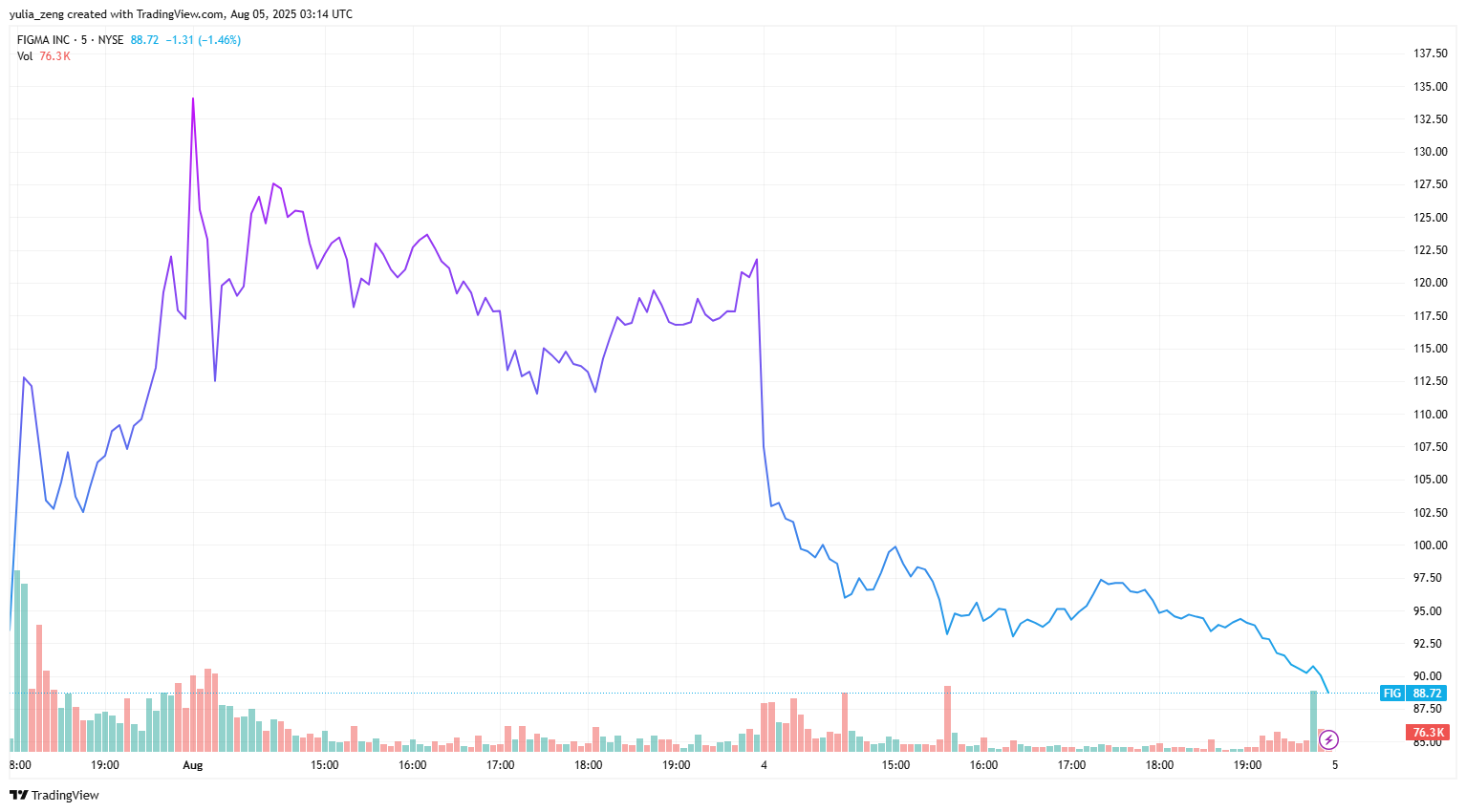From 250% Pop to 27% Crash: Figma's IPO Fever Fizzles in Just Three Trading Sessions

TradingKey - Last week’s breakout star in the design software space, Figma, saw a sharp reversal on Monday as its shares tumbled 27.38% to close at $88.60, giving back much of its spectacular post-IPO gains.

Figma stock; Source: TradingView
Just last Thursday, Figma’s debut on the public market was met with overwhelming enthusiasm, as its stock surged 250% on the first day of trading, closing at $115.50. The company’s valuation briefly surpassed $56 billion, making it one of the year’s most successful IPOs.
"The excitement for Figma's business is not over, but the euphoria that's gone into its heady stock pricing seems to be deflating," said Michael Ashley Schulman, chief investment officer at Running Point Capital in Los Angeles.
Figma’s initial stock surge was not solely driven by company fundamentals.
The company employed a unique auction-based IPO mechanism requiring investors to specify both share quantity and price during subscription—a process designed to maximize trading volume.
For high-demand tech IPOs like Figma, market dynamics reveal that some investors submit large market orders without price limits to secure maximum allocation. This strategy may artificially inflate apparent demand, complicating pricing decisions for underwriters.
Analysts note that Figma’s surge occurred against a backdrop of historically elevated market levels, which have fueled robust retail investor appetite for newly listed stocks—creating fertile ground for the company’s explosive debut.
Figma’s sky-high valuation has raised market concerns, with its price-to-sales multiple exceeding 60 times—far above established peers like Adobe, which trades at approximately 7.5 times forward sales.
This massive premium reflects investor confidence in Figma’s hypergrowth trajectory—revenue expanding at over 40% annually versus Adobe’s roughly 10%—but also places immense pressure on the company to consistently deliver exceptional performance. Any sign of growth deceleration or delayed profitability could trigger significant stock corrections.
Figma boasts 13 million monthly active users and serves 78% of the Forbes Global 2000 companies, with 11,000 clients paying over $10,000 annually.
However, only 24% of its customers pay more than $100,000 per year, highlighting untapped potential in deepening enterprise value.
Despite Monday’s steep decline, 33-year-old CEO Dylan Field still holds a stake worth over $5 billion.







